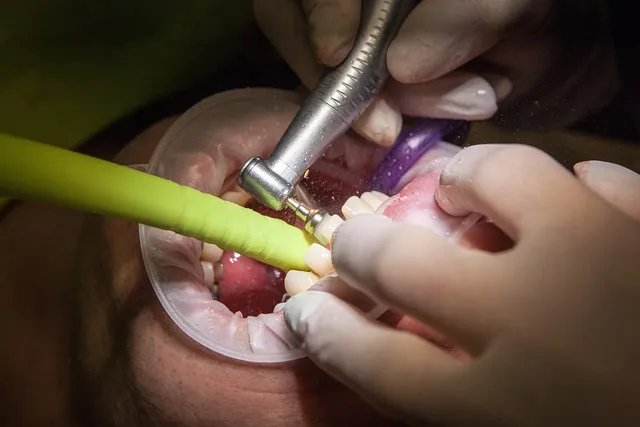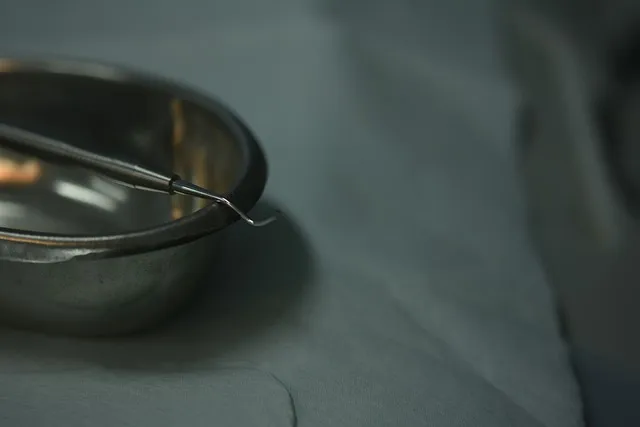Children’s dentistry plays a pivotal role in shaping healthy oral habits from an early age, and Dr. Casares is at the forefront of this crucial field. This comprehensive guide explores the essential components of pediatric dental care, including strategies for preventing common issues. We delve into Dr. Casares’ unique approach, emphasizing prevention through regular check-ups and building good habits. By adopting these practices, parents can ensure their children’s oral health sets a lifelong foundation for a bright, healthy smile.
- Early Oral Care: Setting the Foundation
- Dr. Casares' Approach to Children's Dentistry
- Building Good Habits: Prevention Strategies
- The Benefits of Regular Check-Ups
Early Oral Care: Setting the Foundation

Dr. Casares' Approach to Children's Dentistry

Dr. Casares brings a unique and compassionate approach to children’s dentistry, ensuring that young patients develop a love for their oral health from an early age. Her gentle demeanor puts even the most anxious children at ease, making dental visits enjoyable rather than daunting. By creating a friendly atmosphere, she aims to dispel the fear often associated with dentists, setting the foundation for a lifetime of good oral hygiene.
Her method involves educating both children and parents about proper brushing and flossing techniques, nutrition for healthy teeth, and the importance of regular check-ups. Dr. Casares believes in preventing dental issues before they start, offering personalized guidance tailored to each child’s needs. With her expert care, kids can get started on their oral care journey by simply calling us at 956-686-5000.
Building Good Habits: Prevention Strategies

Building good oral habits early is the cornerstone of children’s dentistry, as it sets the foundation for lifelong healthy teeth and gums. Dr Casares emphasizes prevention strategies that start at home. Regular brushing with fluoride toothpaste twice a day, especially before bedtime, helps remove plaque buildup and prevent cavities. Additionally, flossing once daily teaches children the importance of removing food particles stuck between teeth, where brushes can’t reach.
Proper nutrition is another key component. Limiting sugary snacks and drinks reduces the risk of tooth decay significantly. Encouraging a balanced diet rich in calcium and vitamin D supports strong tooth development. At Dr Casares’ practice, calling 956-686-5000 is the first step towards empowering children to take charge of their oral health early on, ensuring they experience the benefit of a bright, healthy smile for years to come.
The Benefits of Regular Check-Ups

Regular dental check-ups are a cornerstone of pediatric dentistry, promoting healthy oral development in children. These visits, often recommended every six months, serve as preventive measures against tooth decay and gum disease. Dr. Casares understands that establishing good oral hygiene habits at an early age sets the foundation for lifelong health. During these appointments, not only does our team thoroughly clean your child’s teeth, but we also educate them on proper brushing and flossing techniques, ensuring they understand the importance of daily oral care.
Moreover, regular check-ups allow us to detect any potential issues early on. From identifying signs of tooth decay to monitoring gum health, we can address concerns promptly. We encourage parents to involve their children in these visits, fostering an environment where oral health is a shared priority. Contact us at 956-686-5000 or drop a line at [email protected] if you have any questions or want to schedule an appointment for your little one.
Children’s dentistry, as championed by Dr. Casares, emphasizes early oral care and prevention strategies to set a strong foundation for lifelong healthy habits. By incorporating regular check-ups into routines, parents can ensure their children’s teeth remain robust and free from decay. Dr. Casares’ approach, focused on building good habits from an early age, is a game-changer in pediatric dentistry, promoting not just healthier smiles but also the overall well-being of young patients.
